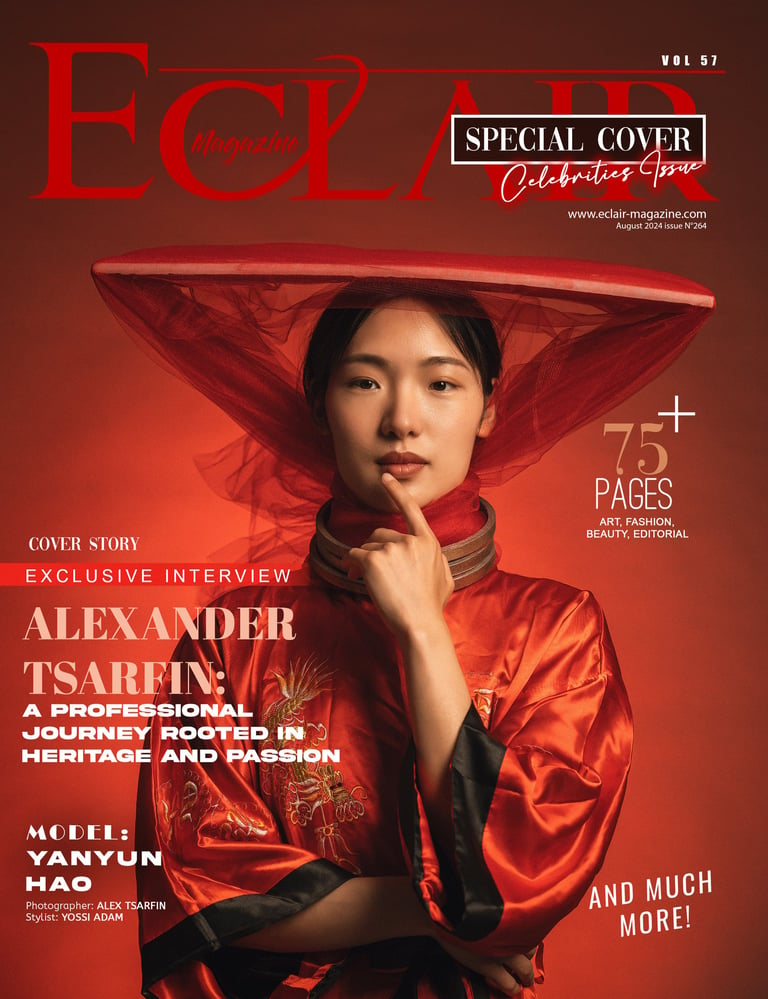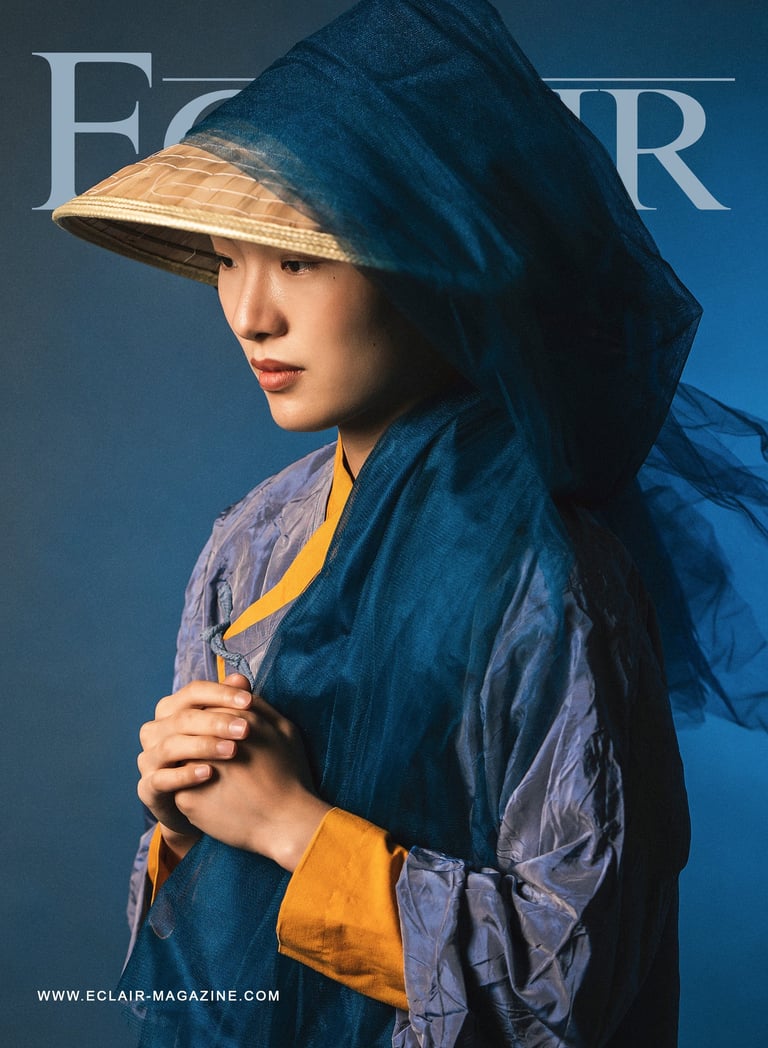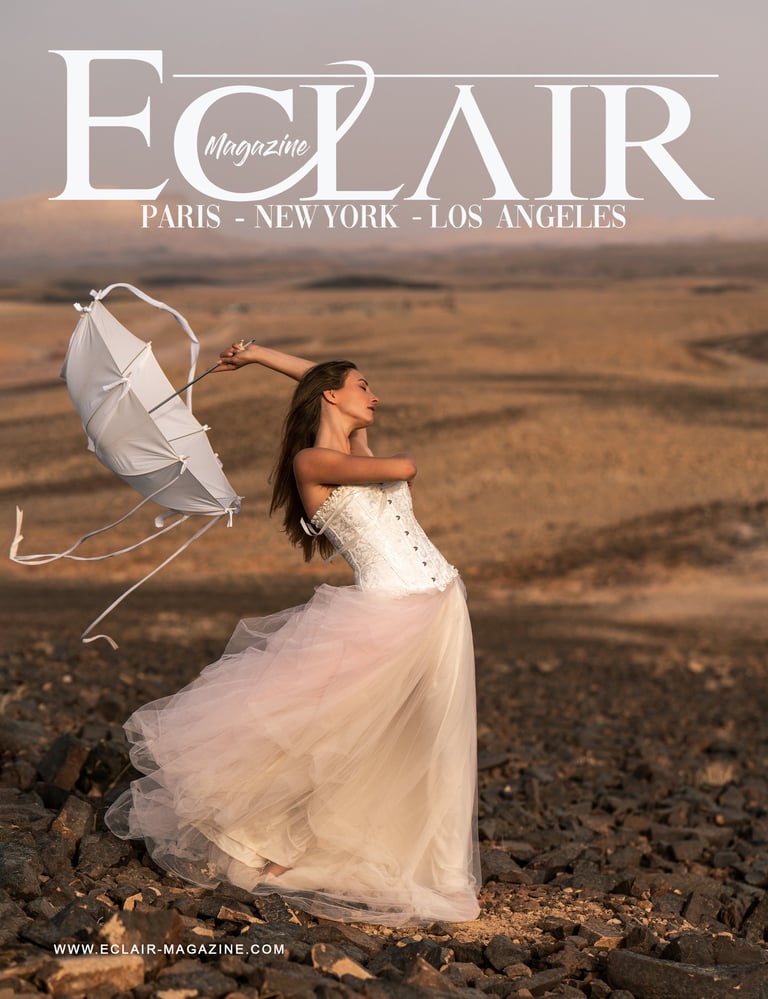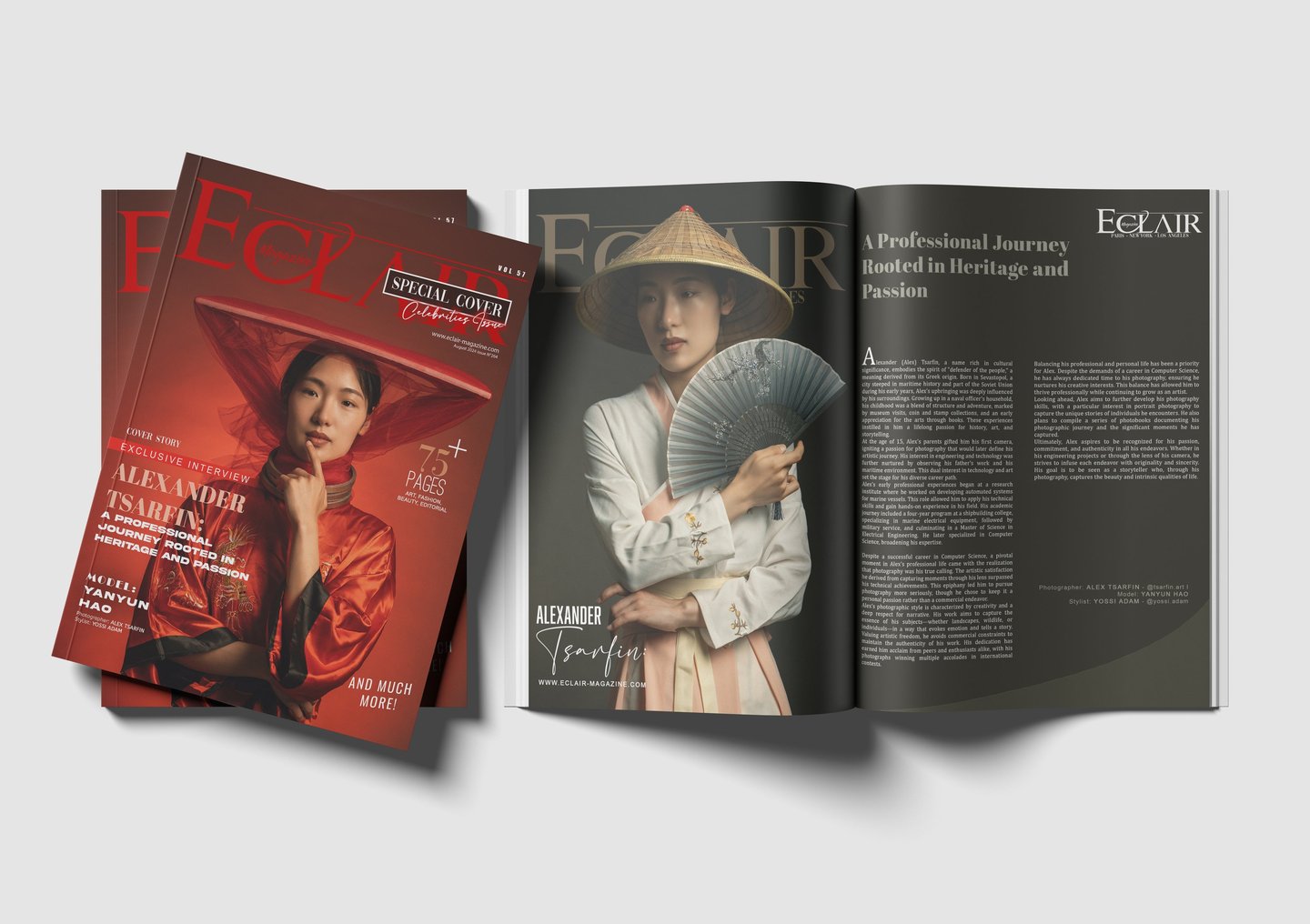SUCCESS STORY
Alexander Tsarfin:
A Professional Journey Rooted in Heritage and Passion
By Guillaume Jean Lefebvre


Alexander (Alex) Tsarfin, a name rich in cultural significance, embodies the spirit of "defender of the people," a meaning derived from its Greek origin. Born in Sevastopol, a city steeped in maritime history and part of the Soviet Union during his early years, Alex’s upbringing was deeply influenced by his surroundings. Growing up in a naval officer's household, his childhood was a blend of structure and adventure, marked by museum visits, coin and stamp collections, and an early appreciation for the arts through books. These experiences instilled in him a lifelong passion for history, art, and storytelling.
At the age of 15, Alex's parents gifted him his first camera, igniting a passion for photography that would later define his artistic journey. His interest in engineering and technology was further nurtured by observing his father's work and his maritime environment. This dual interest in technology and art set the stage for his diverse career path.
Alex’s early professional experiences began at a research institute where he worked on developing automated systems for marine vessels. This role allowed him to apply his technical skills and gain hands-on experience in his field. His academic journey included a four-year program at a shipbuilding college, specializing in marine electrical equipment, followed by military service, and culminating in a Master of Science in Electrical Engineering. He later specialized in Computer Science, broadening his expertise.
Despite a successful career in Computer Science, a pivotal moment in Alex’s professional life came with the realization that photography was his true calling. The artistic satisfaction he derived from capturing moments through his lens surpassed his technical achievements. This epiphany led him to pursue photography more seriously, though he chose to keep it a personal passion rather than a commercial endeavor.
Alex's photographic style is characterized by creativity and a deep respect for narrative. His work aims to capture the essence of his subjects—whether landscapes, wildlife, or individuals—in a way that evokes emotion and tells a story. Valuing artistic freedom, he avoids commercial constraints to maintain the authenticity of his work. His dedication has earned him acclaim from peers and enthusiasts alike, with his photographs winning multiple accolades in international contests.
Balancing his professional and personal life has been a priority for Alex. Despite the demands of a career in Computer Science, he has always dedicated time to his photography, ensuring he nurtures his creative interests. This balance has allowed him to thrive professionally while continuing to grow as an artist.
Looking ahead, Alex aims to further develop his photography skills, with a particular interest in portrait photography to capture the unique stories of individuals he encounters. He also plans to compile a series of photobooks documenting his photographic journey and the significant moments he has captured.
Ultimately, Alex aspires to be recognized for his passion, commitment, and authenticity in all his endeavors. Whether in his engineering projects or through the lens of his camera, he strives to infuse each endeavor with originality and sincerity. His goal is to be seen as a storyteller who, through his photography, captures the beauty and intrinsic qualities of life.
BIOGRAPHY
1. Your childhood in Sevastopol seems to have had a significant influence on you. Can you tell us about a specific moment from your childhood that sparked your passion for history and the arts?
As a child, I was enchanted by a book my mother gave me, "The Adventures of Winnie the Pooh," filled with vibrant illustrations. Hours would pass as I gazed at them, weaving new tales in my mind. This was just the beginning; other books followed, along with visits to museums. I believe the city's distinctive architecture and its rich history played a significant role in nurturing my passion for history and art.
2. You grew up in a maritime and naval environment. How did this unique experience shape your perspective on technology and engineering?
My upbringing in a maritime and naval setting, courtesy of my father's profession as a naval engineer, profoundly impacted my view on technology and engineering. Spending time on ships alongside him allowed me to witness intricate engineering systems firsthand, fostering a deep respect for precision and dependability. These experiences honed my technical acumen and capacity for solving problems, skills that have proven essential in my engineering career and my passion for photography.
3. Receiving your first camera at age 15 was a turning point for you. Can you tell us about your first photography project and what it meant to you?
My initial venture into photography, much like others, involved capturing images of my family members. It was during the winter; snow blanketed everything, and my fingers nearly froze gripping the camera. Yet, the excitement of this newfound passion eclipsed the biting cold. This was during the time of film photography, necessitating the manual development and printing of photos. Undertaking this process within the limited space of a military base presented its challenges. Nonetheless, it was an exhilarating experience!
4. Your career began at a research institute. What were the main challenges you faced while developing automated systems for ships, and how did you overcome them?
The primary challenge I faced was inexperience. Fresh out of college, my head was filled with theoretical knowledge, yet I found myself grappling with the practical aspects of the job. It became clear that this gap could only be bridged by seeking guidance from colleagues who had years of experience under their belts. That's what I did.
5. After your military service, you pursued studies in electrical engineering and computer science. How do these two disciplines complement each other in your current work?
During the early 1980s, I was an integral member of a team dedicated to constructing and coding microprocessor systems. My skill set expanded to include C and various assembly languages. This diverse expertise enabled me to conceive, construct, and code a range of fascinating projects independently. As time progressed, my focus shifted towards software development, specifically for UNIX systems and subsequently for personal computers.
Photographer: ALEX TSARFIN - @tsarfin.art
Models:
YANYUN HAO - yanyunhao@gmail.com I
EKATERINA SAMSONOVA - @sweetheart_innuendo
NELLY DUBININ - @nellydubinin
Stylists:
YOSSI ADAM - @yossi.adam
PINI HAMOU - @pini_hamou
Makeup: ELIZABETH SEMYONOV - @byelizabeth.semyonov


6. Photography is your true passion. Can you share a memorable anecdote or experience you had while capturing a photo?
Why did the photographer go to jail? Because he got framed!
Here's an interesting incident from a portrait shoot:
During a carefully orchestrated studio session, an unexpected twist occurred when the air conditioning went awry, causing a dramatic gust that set the backdrop and lights dancing. The model, initially taken aback, quickly found the fun in the situation. Embracing the chaos, she played along with the wind's wild whims. I adjusted the lighting and backdrop to match the new, vibrant energy, resulting in a series of portraits that were both dramatic and enchanting. The lively movement of the backdrop added a unique texture, making these images some of the most memorable and captivating of the shoot, perfectly encapsulating the model's elegant and whimsical spirit
7. You mentioned that photography is a personal passion rather than a commercial venture. How do you fund your photography projects, and what advice would you give to other amateur photographers?
I self-fund my photography ventures, reinvesting any sales back into my craft. It's a costly passion, but the rewards are worth it. My advice to budding photographers is to prioritize their artistic growth before pursuing financial gain.
8. You have received several international accolades for your photographs. Can you tell us about one of these awards and the impact it had on your career and motivation?
In 2020, my photograph "Gates to Delirium" won silver at The Prix de la Photographie, Paris. The Paris Photography Prize was founded in 2007 and has since become one of the most prestigious photography awards in Europe.
My passion for Paris as a hub of art has always been profound, and it was the recognition I received from the competition that truly ignited my motivation. That moment marked a turning point where I began to truly believe in my own abilities.
9. Balancing your professional and personal life seems crucial to you. What principles or routines do you follow to maintain this balance?
I strive to stick to assigned work hours and personal time, focus on prioritizing critical tasks, and set clear goals. I try to clearly separate work and home responsibilities, schedule regular breaks and vacations, maintain a regular exercise regimen, and try to manage stress effectively.






Interview
10. You have future projects in photography, including photo books and an interest in portraits. Can you tell us more about these projects and what you hope to achieve through them?
I am planning to develop a photo book series that will showcase the varied expressions and narratives of women from distinct communities. The goal is to illuminate their individual experiences and feelings, providing an intimate glimpse into their lives and sparking broader conversations on identity and community ties. Through this endeavor, I aim to present a more intricate and detailed depiction of my subjects, while also pushing the limits of my creativity and forging a deeper connection with my viewers.
Quality, not quantity
We have made quality our habit. It’s not something that we just strive for – we live by this principle every day.
